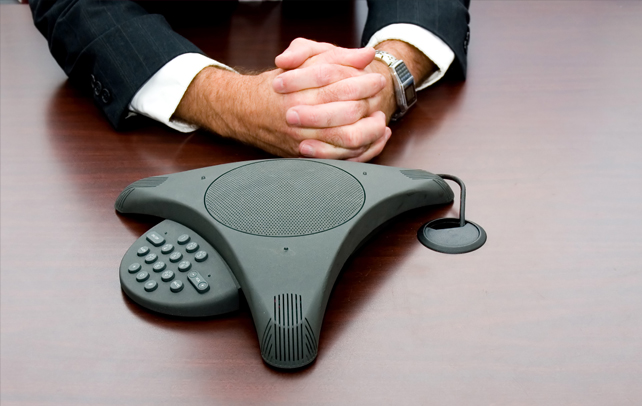Internet Etiquette

Have you been receiving nasty comments on the net and are disturbed about them? Well, that would obviously be a person who does not know the basic netiquettes. Wondering what netiquette is? It is the basic etiquette to be followed on the internet. It is the unofficial online code which is expected to be followed by every cyber-citizen. In every place, there are etiquette to be followed. Be it a restaurant, an office or a restroom, every place has its own set of rules. Similarly, internet also has etiquette which must be followed by a person while using the network. In today’s generation, almost every person uses the internet for a range of its services like typed chatting or e-mails or even audio-video chats. The use of this enormous medium of communication has become so ubiquitous that every person needs to know the netiquette. It is a casual form of courtesy in communication which is recommended to be used by a person on network. There are not too many things you need to know. You just have to know the right way of stating your message and know how to have an effective communication on internet. Read through the next section to know the internet netiquette in detail.
Internet Netiquette
- It is best to avoid writing words or phrases with the caps-lock on (or upper case). Upper case is used only when you want to give an impression that you are shouting; so obviously, it has the potential of making the conversation rude. Use caps-lock when you have to emphasis or stress on a point or word. Using it for an entire sentence means making the sentence difficult to read.
- Keep your e-mails concise and clear. Do not write long e-mails; they only make people lose interest in what you have to say. Crisp emails allow a better understanding of the content.
- Do not curse, swear or insult others on the net. Speak to them the way you expect them to speak to you directly. Avoid saying nasty things over chat or on any public forum on net. It remains in the archive and you could be penalised for it.
- Do not reply to strangers. If you receive e-mails from people you don’t know then do not reply. It is not safe. The worst can happen if someone purposely wants to hurt you and your system. If you find an e-mail offensive or insulting do not reply to it. Ignore such offensive mails and block the sender for good. If still the mails get through and the content crosses all limits, then save the email and report it to the administrators and the customer service.
- Since the conversation is not face-to-face, it gets difficult to understand whether a said comment was serious, rude or humorous. Emoticons or the smileys come in great help in this case. The smileys show if what you are saying is serious or funny or the like. It not only helps in clear understanding but also adds color to the message.
- Think before you send your message. Once you click on the send option, you cannot take anything back. Hence, know what you are typing and be polite with your words. Do not type out whatever comes to your mind.
- Use proper spelling and grammar. Use punctuations, wherever required, appropriately since it gives a clear understanding of the message that you want to deliver. Use the spell check option if you do not know the exact spelling of the words.
- Look carefully before clicking on the ‘reply all’ option. Do not use that option unless you want your mail to be sent to all people marked in the original mail.
- In chats, if you want the conversations to not get recorded anywhere then keep the ‘chat off the record’ option on. It does not save the conversation anywhere and it remains safe and secret.
- There are some emails which are sent as chain letters. Do not forward that. Such mails mostly annoy people and create spam. They are very random and, more often than not, people aren’t interested in reading them.
- Write the email in a proper structure and format. Reading from a screen is comparatively difficult and hence, it is advisable to use paragraphs and blank lines between paragraphs. Number your points or add bullets if you want all your points highlighted.
- Do not use the ‘high priority’ option unless and until the content genuinely needs priority. Using it for ordinary e-mails makes it look aggressive and valueless.
- Once you finish with your e-mail or the typing in the chat, read through to check what you have written and make necessary changes if required.
- Use cc and Bcc when you have to send mails to many. If the mail is addressed to all the recipients then add all names in the ‘To’ column. If there are people who are not supposed to be the direct recipients but are to be kept informed that the mail is sent, you have two options: You can either add their names to cc (meaning Carbon Copy), which will let everyone know that they are in the loop. Or you can add their names in Bcc (Blind Carbon Copy) to keep their identities secret from all other recipients.
- Use abbreviations wherever necessary. BTW (by the way), ROFL (rolling on floor laughing), LOL (laughing out loud), FYI (for your information) etc. are the abbreviations commonly used.
- Do not reply to spams. It will only lead to more spans or, in worst case, infect your system with viruses and other malicious software.
- It is best to avoid using emails while discussing anything confidential.
- Use appropriate and short subject headers. Long subject titles do not capture the interests and discourage people from reading your mail.
Net etiquettes are not rigid rules that people have to follow to the ‘T’. They are general guidelines which, when followed optimally, make the internet a well-organised and civic forum. These rules make the internet conversations and mails unambiguous and help protect you from the unsafe world of the cyber. The way you talk on internet shows your fluency and your command over your language also so make sure you don’t underestimate grammar on this forum.












